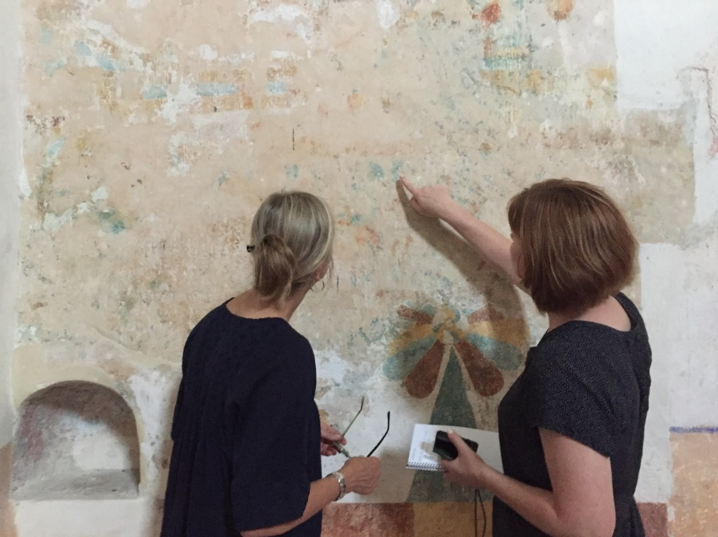Linda K. Williams, professor of art history at University of Puget Sound, has been awarded a major collaborative research grant from the National Endowment for the Humanities (NEH) in support of a research project titled “Maya Christian Murals of Yucatán: Indigenous Catholicism in Early Modern New Spain.” This collaborative grant will allow Williams and co-principal investigator (PI) Amara Solari, associate professor of art history at Penn State University, to document and pursue multidisciplinary research questions that focus on the 23 remaining religious murals painted by Maya artists in Christian churches and monasteries on the Yucatan Peninsula between 1550 and 1750.
The multiyear project will result in a comprehensive book, forthcoming from University of Texas Press, as well as an interactive website, created in conjunction with Yale University’s Center for the Material and Visual Cultures of Religion (MAVCOR), which will present images of the murals within their physical context and results of the scholars’ research.
Working with INAH (Instituto Nacional de Antropología e Historia), Mérida, and the Pennsylvania State University Materials Characterization Laboratory, Williams and Solari have tested samples of pigments that indicate continuity in facture and painting practice from before the arrival of Europeans through the early colonial period. Further materials analysis will determine the pigments used by Maya artists, information that aids in preservation of the fragile murals and allows for interpretation.
Williams and Solari approach the paintings as records of Maya experience during a period of political, social, and religious transition and upheaval. Their work investigates how the visual adaptation of pre-Columbian artistic practices impacted the emergence of Maya Catholic identity. Interpretation of the distinctive imagery and materials used in painting the walls, vaults, apse, and cloisters of these early churches will allow the scholars to more fully explore the place of Yucatan in early modern religious culture.
“We are beyond thrilled to have been awarded this NEH grant,” Williams said. “It makes possible the scope of archival research and on-site study necessary for this type of multifaceted project. We are extremely grateful that we now have the funding to work in the field and the means to complete the analysis and writing.”
The grant, established by the NEH to support interpretive research undertaken by a team of collaborating scholars that adds significantly to knowledge and understanding of the humanities, is one of only 14 collaborative research grants awarded in 2019–20 by the organization.
